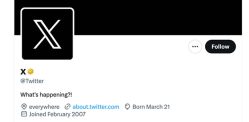the orders fall outside the law that governs content blocking.
An Indian court is set to hear a lawsuit filed by Elon Musk’s X against Prime Minister Narendra Modi’s government. X has accused the government of misusing the law to censor content.
In March 2025, X sued the government, claiming the home ministry’s Sahyog portal was expanding censorship powers unlawfully.
X said the portal allowed officials to issue takedown orders “in violation” of India’s digital laws. It called Sahyog a “censorship portal” and said it could not be forced to join it.
The Indian government insists the portal is necessary to tackle harmful online content. Major US tech firms, including Amazon, Google, and Meta, have signed up for Sahyog.
Sahyog is designed to automate government notices to content platforms.
X filed its lawsuit in Karnataka after the railway ministry ordered it to remove “hundreds of posts”.
Some posts included videos of a deadly crowd crush in Delhi that killed 18 people during the Kumbh Mela festival.
X argues the orders fall outside the law that governs content blocking.
Under this law, officials must follow due process, including hearings and reviews.
X says the government is bypassing these safeguards and allowing “countless” officials, including “tens of thousands of local police officers”, to issue takedown orders arbitrarily.
In court, the government argues its actions are lawful. It says it does not issue blocking orders but only “notices” regarding unlawful content. It also defends Sahyog as a “necessity” due to increasing online threats.
The case is “of vital importance” due to “a wholesale increase in censorship”, said Apar Gupta of the digital rights group Internet Freedom Foundation.
This is not the first dispute between X and the Indian government.
In 2021, Delhi police raided X’s offices, before Musk’s ownership, after it flagged a ruling party spokesperson’s tweet as “manipulated media”.
In 2022, X sued the government over blocking orders, including some related to farmer protests.
The court ruled against X, imposing a fine of £45,000. X, under Musk, appealed, and the case is ongoing in Karnataka’s high court.
In 2024, India called X a “habitual non-compliant platform” in legal proceedings.
The government is also investigating X’s chatbot, Grok, for “controversial responses” on politically sensitive topics.
The lawsuit comes as Musk’s other businesses expand in India.
In March, Starlink signed deals with major telecom firms to bring satellite internet to India. Tesla has begun hiring in Delhi and Mumbai and is searching for showrooms.
Musk met Modi at the White House last month.
Michael Kugelman of the Wilson Centre’s South Asia Institute said Musk’s growing interests in India and ties with President Donald Trump give him “ample leverage” with India.
This means he has a lot of leeway in terms of how he operates, including making a decision to sue the Indian government. He added that the lawsuit might not harm Musk’s business prospects in India.






























































